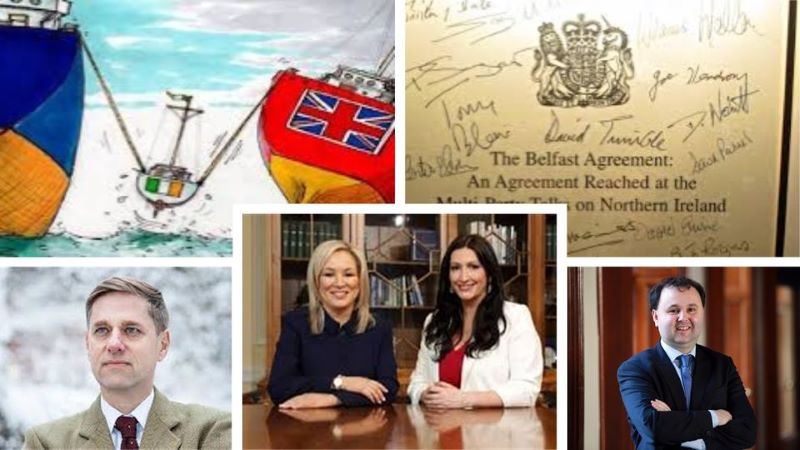The Good Friday Agreement dampened sectarian conflict and brought stability to Northern Ireland, but the peace deal was challenged by Brexit-related border tensions that threw the region’s hard-won gains into doubt.
The Northern Ireland Protocol, which implements new border checks for goods coming from Great Britain, sparked fears over the possibility that renewed sectarianism could undermine the progress achieved by the Good Friday Agreement. Meanwhile, the republican Sinn Fein political party has taken leadership of the Northern Ireland government for the first time in early 2024, reviving the debate over the potential for a referendum on unification with the Republic of Ireland.
Recently, controversial legislation passed in the UK, the Northern Ireland Troubles (Legacy and Reconciliation) Bill, which aims to end Troubles-related legal proceedings and give conditional immunity to those cooperating with investigations by a new independent commission. But the bill has been heavily criticised by victim groups, human rights organisations, and Northern Ireland’s political parties.
Join historians Richard Aldous and Brian Murphy as they discuss these issues on a Zoom lecture.
Richard Aldous, PhD., is the Eugene Meyer Professor of British History and Literature at Bard College. He is a Fellow of the Royal Historical Society. Author and editor of 11 books, including Schlesinger: The Imperial Historian; Reagan and Thatcher: The Difficult Relationship; Macmillan, Eisenhower and the Cold War; The Lion and the Unicorn: Gladstone vs. Disraeli; and biographies of Malcolm Sargent and Tony Ryan. He taught for 15 years at University College Dublin, where he was chair of the History Department. Aldous writes regularly for publications including the Wall Street Journal, New York Times, and The American Interest, where he is a contributing editor.
Brian Murphy, PhD., PGDip is a lecturer in the College of Arts and Tourism, Technological University Dublin. Murphy earned his doctorate in Modern Irish History from the School of History and Archives, University College Dublin. He was the speech writer for Bertie Ahern, who was Taoiseach at the time of the Agreement.
